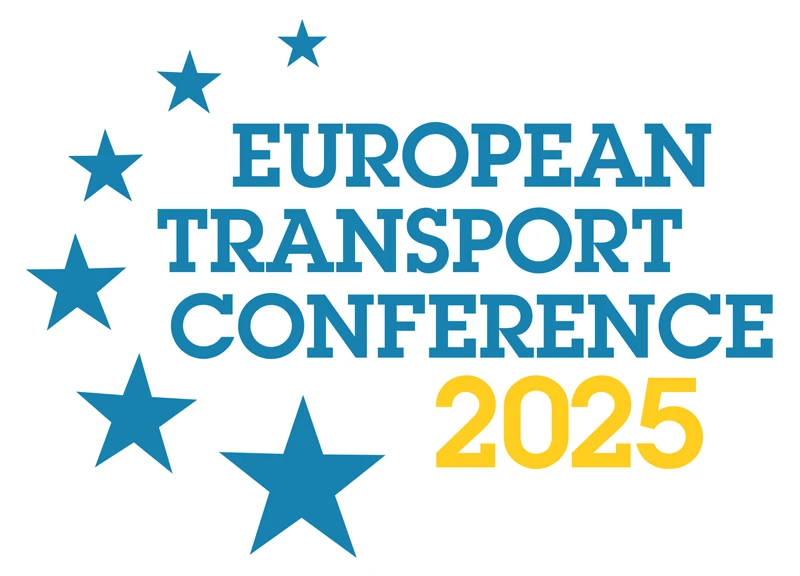-
Past ETC Papers

Browse, search and view papers from the past AET Conferences.
-
Members' Area

AET promotes networking and exchange of ideas, information and opportunities amongst members.
Conference Papers 2023
Milan, Italy
ETC Conference Papers 2023
TRAIN: How do actors perceive value in truck platooning?
Seminar
Day 1 (6 Sep 2023), Session 1, Autonomous Driving for Different Modes, 10:30 - 12:30
Status
Accepted, awaiting documents
Submitted by / Abstract owner
António Lobo
Authors
António Lobo (a*), Liliana Cunha (b), Catarina Neto (c), Anabela Simões (c), Sara Ferreira (a), Sérgio Pedro Duarte (a)
(a) CITTA – Centro de Investigação do Território, Transportes e Ambiente, Faculdade de Engenharia, Universidade do Porto, Rua Dr. Roberto Frias, 4200-265 Porto, Portugal
(b) CPUP – Centro de Psicologia da Universidade do Porto, Faculdade de Psicologia e Ciências da Educação, Universidade do Porto, Rua Alfredo Allen, 4200-135 Porto, Portugal
(c) Universidade Lusófona, Lisboa, Portugal
Short abstract
Focus groups performed under the TRAIN project evaluate the perceived value from different groups of actors by mapping benefits, risks, and requirements from their perspectives.
Abstract
Abstract
Recent developments in vehicle automation technology and vehicle-to-vehicle communications offer a variety of opportunities for new business models for freight transport. Truck platooning emerges one possibility for freight transport operations to be improved regarding efficiency and costs, climate and environment, and the promise of better road safety. The multiple areas affected by truck platooning, are naturally related to multiple societal groups and sectors. While companies may see value due to the expected financial benefits, drivers may resist due to lack of trust in technology. On the other hand, other drivers may see, in truck platooning, the opportunity to develop new skills and enjoy better working conditions. The perspectives of regulators, road operators and manufacturers provide even more complexity to the balance between benefits and risks that will, in the end, determine truck platooning acceptance.
In this context, focus groups (FG) performed under the TRAIN project enabled understanding how the different groups of actors perceive the value offered by truck platooning. To involve all actors in the ecosystem, a total of 11 focus groups took place (4 with drivers, 2 with logistics companies, 2 with national regulators, and 3 with road operators). The FG sessions comprised (1) understanding current mental models of vehicle automation, (2) discussing risks and benefits from truck platooning, (3) expressing requirements for truck platooning implementation, and (4) brainstorming the possible impacts of its implementation. The results from the FG showed that the benefits some groups see in truck platooning might be risks in the perspective of others. For that reason, we used the results to map the value constellation, not only for the freight transport ecosystem, but also in the perspective of each actor group.
Moreover, value only will exist if some mandatory requirements are met and, in the actors’ perspectives, there are many uncertainties that are yet to be tackled. Some examples are the issues related to cost and environmental benefits resulting from fuel consumption reduction and improved operations. Topics such as labor demands and working conditions, or road safety also raised some doubts on whether they were true benefits or risks. Besides, participants mentioned that the final solution will depend on technological aspects as manufacturers do not have a universal solution regarding vehicle-to-vehicle or vehicle-to-infrastructure communication protocols. As the main value offers are strongly connected to the actors’ requirements, the value constellations guided the task of mapping the requirements for truck platooning implementation. The multiple perspectives present in the resulting set of benefits, risks and requirements provide a holistic overview of the potential value of the freight transport ecosystem when truck platooning is implemented.
Keywords
Truck platooning, Automated trucks, Technology acceptance, Focus groups, Requirements, Freight transport.
Acknowledgments
This work is financially supported by national funds through the FCT/MCTES (PIDDAC), under the project PTDC/ECI-TRA/4672/2020.
Programme committee
Intelligent Mobility - Management and Operation
Topic
Supply chain challenges – impacts of labour and resource constraints in freight and passenger transport
Documents:
No documents yet.
Association For
European Transport
Forester House
Doctors Lane
Henley-in-Arden
Warwickshire, UK
B95 5AW
+44 (0) 15 64 793552
VAT number: 710 1866 64
Conference Supporters & Endorsers




Legal Entity
The Association for European Transport is registered as an Association ('vereniging') with the Chamber of Commerce for Haaglanden in The Netherlands under company number 27170096.
Built on Zenario




